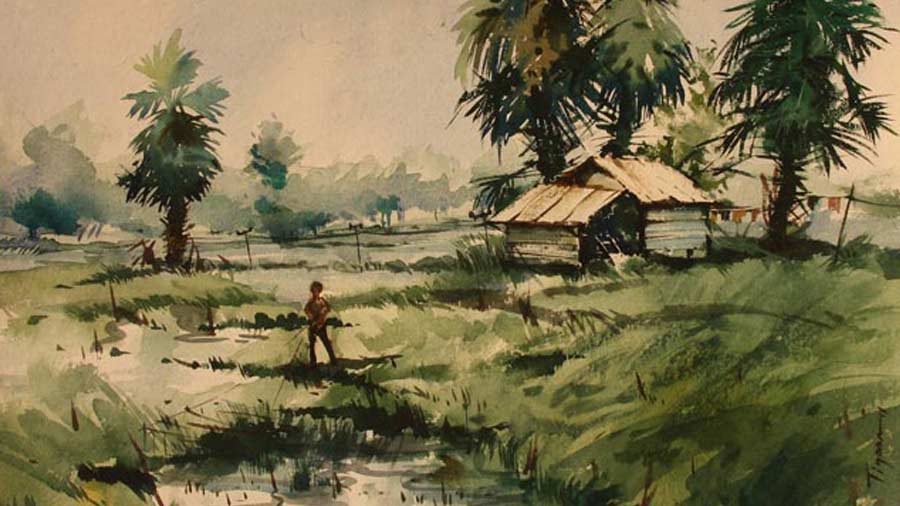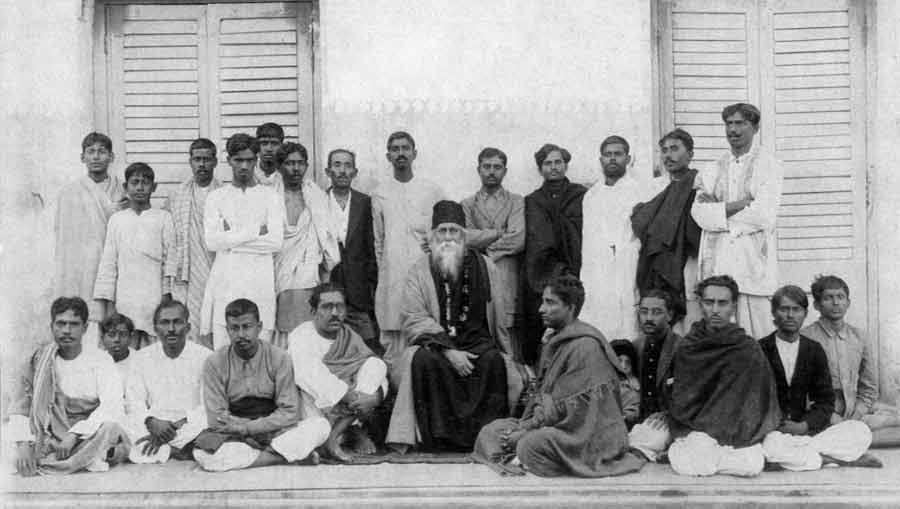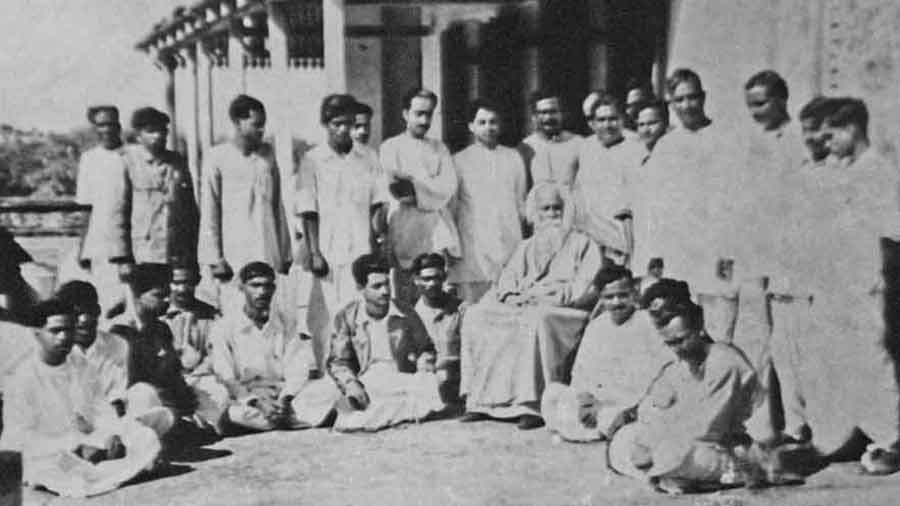When speaking of Rabindranath Tagore, one most notably talks about his songs, poetry, stories and art. However, there is another, relatively lesser-known body of work that stands testament to the Bengali polymath’s artistic prowess – his letters.
Published by Niyogi Books, Glimpses of Bengal: Select Letters 1885-1895 is a curation of some of the letters that the bard had written during the 1890s, when he was travelling to manage his family’s scattered agricultural estates. From Shazadpur to Shelidah to Cuttack, these letters, most of which were written to his niece Indira Devi, capture the beauty of rural Bengal whilst offering a closer look at country life. Vivid descriptions of the landscape, woven with his personal observations and insights, the letters in this collection can be enjoyed by both experienced and inexperienced readers of Tagore.
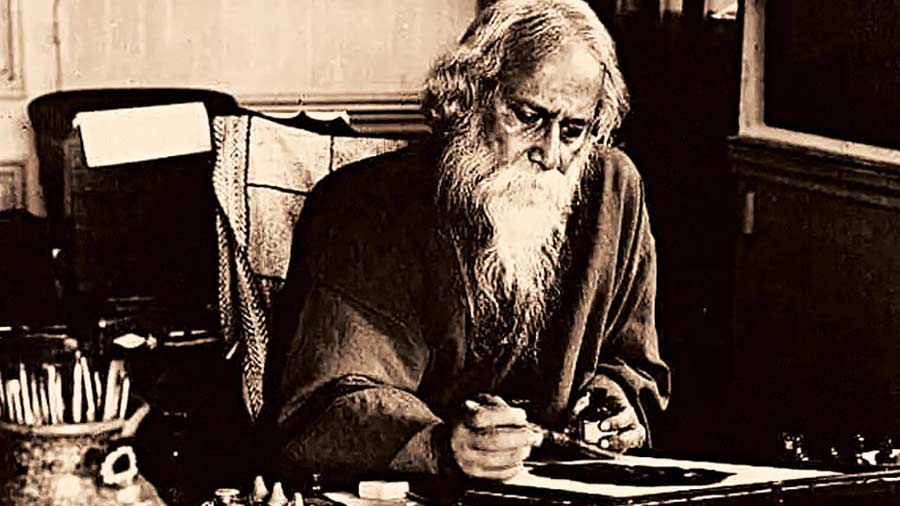
TT Archives
The following letters have been excerpted with permission from the publishers. -----------------------------------------
Shazadpur
June 1891
I had a most extraordinary dream last night. The whole of Calcutta seemed enveloped in some awful mystery, the houses being only dimly visible through a dense, dark mist within the veil of which there were strange doings. I was going along Park Street in a hackney carriage, and as I passed St. Xavier’s College, I found it had started growing rapidly and was fast getting impossibly high within its enveloping haze. Then it was borne in on me that a band of magicians had come to Calcutta, who, if they were paid for it, could bring about many such wonders. When I arrived at our Jorasanko house, I found that these magicians had turned up there too.
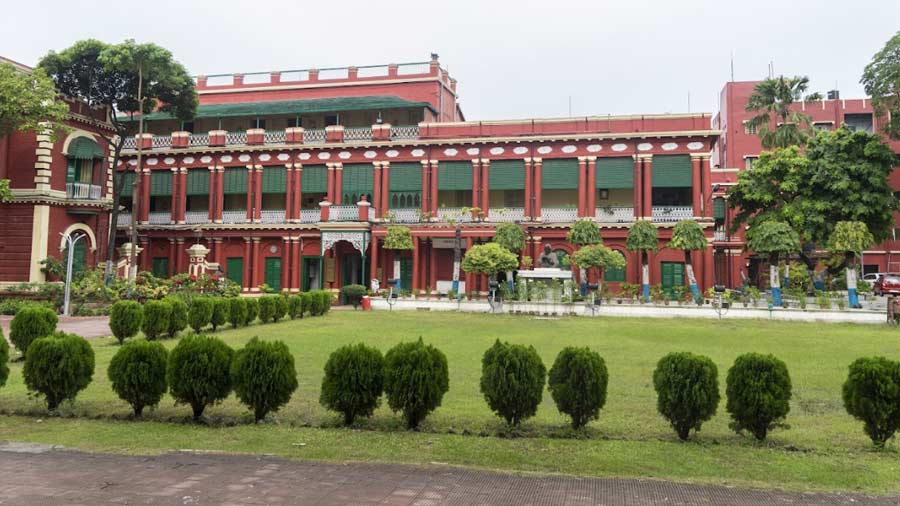
The Jorasanko house Shutterstock
They were uglylooking, of a Mongolian type, with scanty moustaches and a few long hairs sticking out of their chins. They could make men grow. Some of the girls wanted to be made taller, and the magician sprinkled some powder over their heads and they promptly shot up. To everyone I met, I kept repeating: “This is most extraordinary—just like a dream!” Then someone proposed that our house should be made to grow. The magicians agreed and, as a preliminary, began to take down some portions. The dismantling over, they demanded money, or else they would not go on. The cashier strongly objected. How could payment be made before the work was completed? At this, the magicians got wild and twisted up the building most fearsomely, so that men and brickwork got mixed together, bodies inside walls and only head and shoulders showing. It had altogether the look of a thoroughly devilish business, as I told my eldest brother. “You see,” said I, “the kind of thing it is. We had better call upon God to help us!” But try as I might to anathematise them in the name of God, my heart felt like breaking and no words would come. Then I awoke. A curious dream, was it not? Calcutta in the hands of Satan and growing diabolically within the darkness of an unholy mist!
Bolpur
12th Jaistha (May) 1892
I usually pace the roof-terrace, alone, of an evening. Yesterday afternoon I felt it my duty to show my visitors the beauties of the local scenery, so I strolled out with them, taking Aghore as a guide. On the verge of the horizon, where the distant fringe of trees was blue, a thin line of dark blue cloud had risen over them and was looking particularly beautiful.
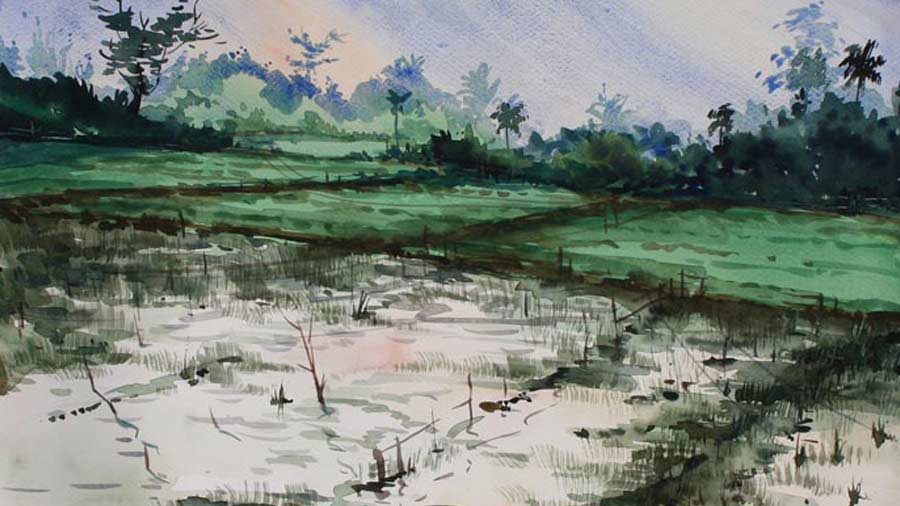
Illustration by Tiyasa Das
I tried to be poetical and said it was like blue collyrium on the fringe of lashes enhancing a beautiful blue eye. Of my companions one did not hear the remark, another did not understand, while the third dismissed it with the reply: “Yes, very pretty.” I did not feel encouraged to attempt a second poetical flight. After walking about a mile we came to a dam, and along the pool of water there was a row of tâl (fan palm) trees, under which was a natural spring. While we stood there looking at this, we found that the line of cloud which we had seen in the North was making for us, swollen and grown darker, flashes of lightning gleaming the while. We unanimously came to the conclusion that viewing the beauties of nature could be better done from within the shelter of the house, but no sooner had we turned homewards than a storm, making giant strides over the open moorland, was on us with an angry roar. I had no idea, while I was admiring the collyrium on the eyelashes of beauteous dame Nature, that she would fly at us like an irate housewife, threatening so tremendous a slap! It became so dark with the dust that we could not see beyond a few paces.
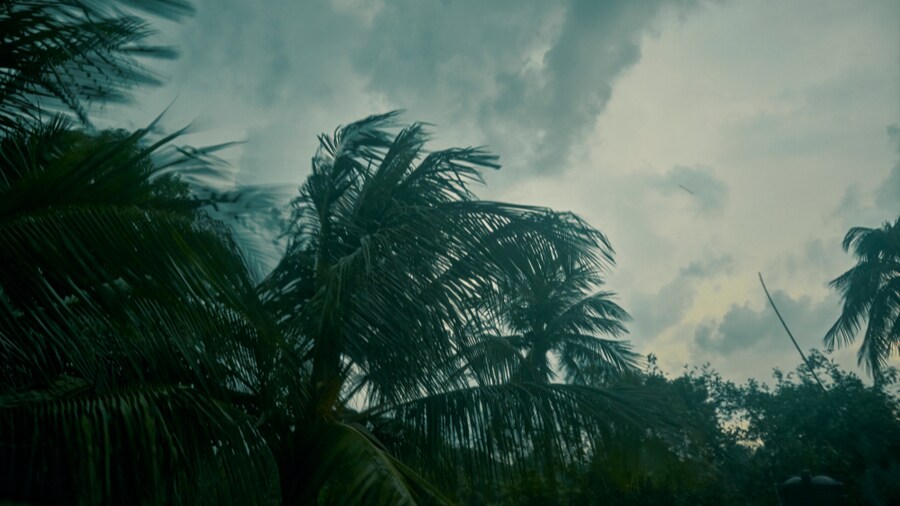
Shutterstock
The fury of the storm increased, and flying stony particles of the rubbly soil stung our bodies like shot, as the wind took us by the scruff of the neck and thrust us along, to the whipping of drops of rain which had begun to fall. Run! Run! But the ground was not level, being deeply scarred with watercourses, and not easy to cross at any time, much less in a storm. I managed to get entangled in a thorny shrub, and was nearly thrown on my face by the force of the wind as I stopped to free myself. When we had almost reached the house, a host of servants came hurrying towards us, shouting and gesticulating, and fell upon us like another storm. Some took us by the arms, some bewailed our plight, some were eager to show the way, others hung on our backs as if fearing that the storm might carry us off altogether. We evaded their attentions with some difficulty and managed at length to get into the house, panting, with wet clothes, dusty bodies, and tumbled hair. One thing I had learnt; and will never again write in novel or story the lie that the hero with the picture of his lady-love in his mind can pass unruffled through wind and rain. No one could keep any face in mind, however lovely, in such a storm—he has enough to do to keep the sand out of his eyes! The Vaishnava poets have sung ravishingly of Radha going to her tryst with Krishna through a stormy night. Did they ever pause to consider, I wonder, in what condition she must have reached him? The kind of tangle her hair got into is easily imaginable, and also the state of the rest of her toilet. When she arrived in her bower with the dust on her body soaked by the rain into a coating of mud, she must have been a sight! But when we read the Vaishnava poems, these thoughts do not occur. We only see on the canvas of our mind the picture of a beautiful woman passing under the shelter of the flowering kadambas in the darkness of a stormy Shravan night towards the bank of the Jumna, forgetful of wind or rain, as in a dream, drawn by her surpassing love. She has tied up her anklets lest they should tinkle; she is clad in dark blue raiment lest she be discovered; but she holds no umbrella lest she get wet, carries no lantern lest she fall! Alas for useful things—how necessary in practical life, how neglected in poetry! But poetry strives in vain to free us from their bondage—they will be with us always; so much so, we are told, that with the march of civilisation it is poetry that will become extinct, but patent after patent will continue to be taken out for the improvement of shoes and umbrellas.
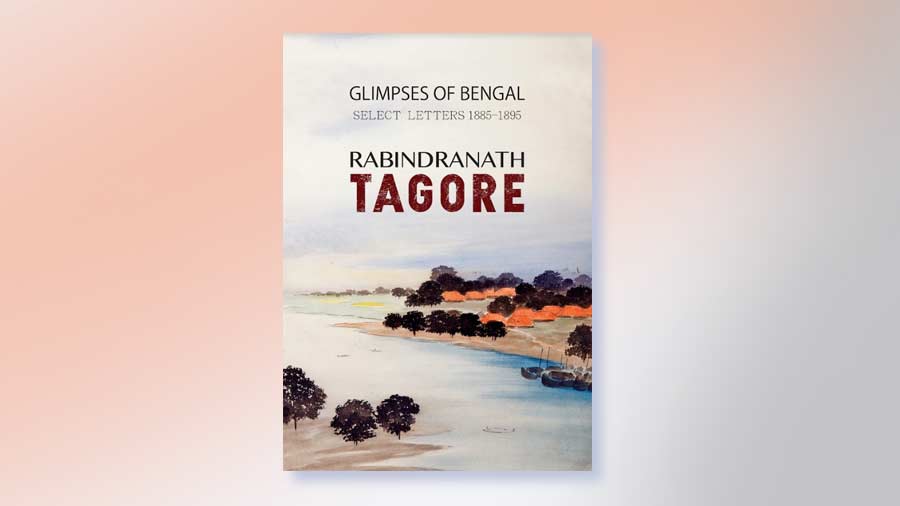
Glimpses of Bengal: Select Letters 1885-1895 by Rabindranath Tagore has been published by Niyogi Books. Read more about the book here.
